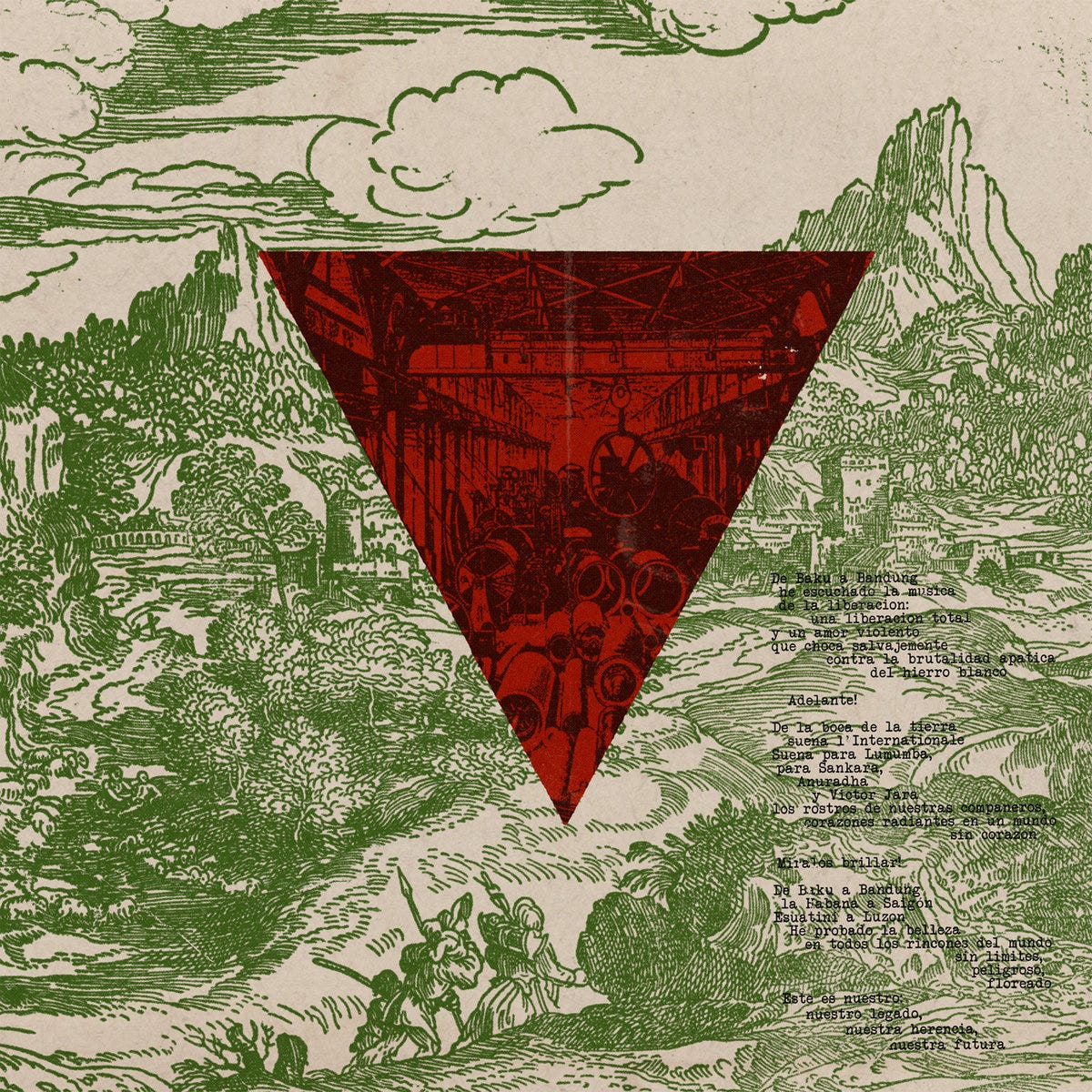Tucson’s The Myrrors have long been one of Arizona’s most compelling exports, mining kosmische, drone, folk, minimalism, and free jazz to craft a sound that’s genuinely psychedelic and potently spiritual. Things have been relatively quiet on The Myrrors front for a few years, but not anymore, as “Land Back,” the title track of the band’s forthcoming LP, is among the band’s loudest and most direct rockers to date. An anti-colonial screed that bristles with crackling energy, it’s driven by chanted gang vocals shouting the title phrase over and over as a rallying cry.
I first met N.R. Safi in the late 2000s, while working at the Chandler location of Zia Records. I had a few years on him, but we shared a taste for garage rock like The Black Angeles and a deep interest in the krautrock of Amon Düül II, Popol Vuh, and Träd, Gräs & Stenar, and we’d often trade recommendations. Early Myrrors material might’ve betrayed a garage rock revival influence, but the band has grown steadily and expansively further out as the years have gone on.
As evidenced by the radical sentiments of “Land Back,” global dividing lines, and the racism and brutal economic conditions that inform and enforce them, have long been a topic of musical concern for Safi. These days, he’s based in the Netherlands, where he tends to a label, Radio Khiyaban, a label dedicated to the music of South Asia, West Asia, and North Africa, but the desert city of Tucson, where Land Back was recorded, is mere miles from the Mexico/US border, and that tension informs the music. When I spoke with him for Aquarium Drunkard about the band’s 2018 album Borderlands, he explained that his views are shaped from direct, personal experience:
Coming from Tucson, how has your own perception of the “border” between the US and Mexico changed over the years? Is the record an attempt to comment on the concept of borders more generally, in terms of the definitions we come up with to divide our art, politics, and beliefs in daily life?
“The title and themes behind Borderlands emerged pretty naturally during the process of working on the album. Living in Tucson really puts you at the front line of a lot of what has been going on regarding the border patrol, federal immigration policies, and abuses, institutionalized racism, the complexities of heterogeneous regional histories, all that…to the point where these issues really become an inescapable part of daily life. I had been thinking about trying to steer the next record in a more conceptual direction anyways, and when ‘The Blood That Runs the Border’ became one of the first tracks cut for the session it more or less guided me into the rest.
That being said, domestic border concerns were just the starting point; the album speaks towards border conflict on a global scale, as well as what happens in that dead grey zone in between the ‘walls’ that people construct, whether those are physical, social, or psychological. Another real historical border that played a large part in the ideas behind the album is the Durand Line, the frontier-point between Afghanistan (where my father is from) and Pakistan drawn by the British empire for political reasons which separated the Pashtun homeland and has caused endless problems over the years…many of which might sound familiar to people from, say, the Tohono O’odham Nation in the Sonoran Desert, whose land and whose families were also divided by foreign interest between two countries in a seemingly perpetual state of conflict. As the saying goes, ‘we didn’t cross the border, the border crossed us.’”
Though the music of Land Back was recorded in Tucson—S-cuk Sǫn, on occupied Tohono O'odham land—back in 2021, it remains uncomfortably relevant, as Israel continues a US-backed genocide and masked thugs disappear people from the streets of towns far and near the border. Those walls include the walls we build up to inculcate ourselves too; music like that of The Myrrors has the uncanny ability to help tear those structures down.




